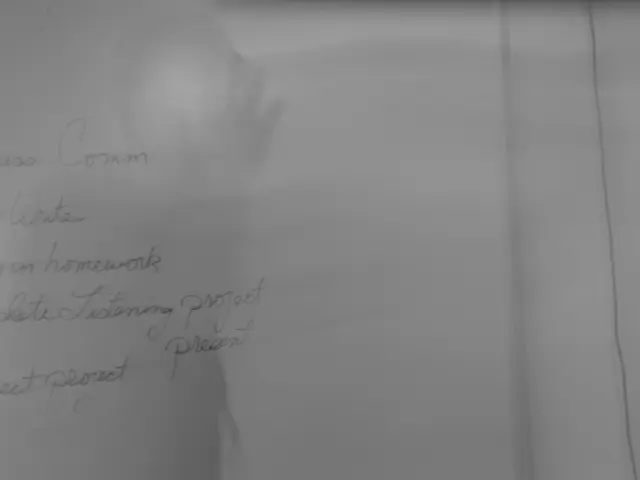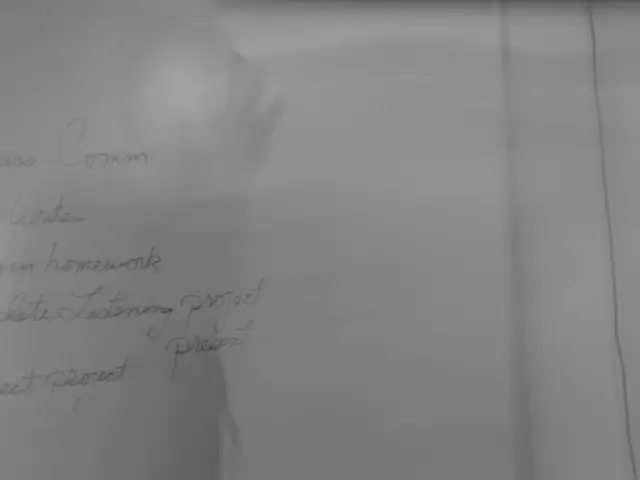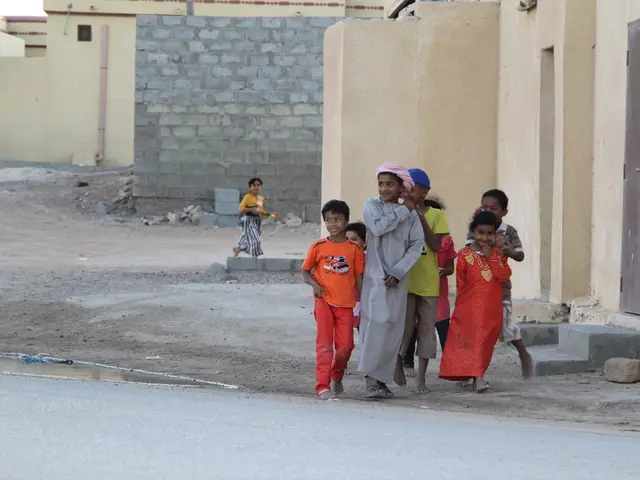Escalating violence in Syria jeopardizes its rebuilding progress
In the heart of Syria, a disturbing incident at the Sweida National Hospital has sparked a wave of concern and calls for action. The Syrian Ministry of Interior has ordered an investigation into the hospital execution, where indications suggest that the killers are government-affiliated [1].
This tragic event has highlighted the co-existence conflict between the narratives of Syria's transition and ongoing violence. On one hand, the country is attempting to turn a page on years of conflict and misrule. On the other, Syria remains a divided nation stalked by fear, as evidenced by the recent sectarian violence in the Druze-majority governorate of Sweida [2].
Foreign partners, including international bodies like the UN and independent commissions, have been pressing Damascus for justice and accountability. The Independent International Commission of Inquiry on Syria has published reports detailing violations against civilians, urging the Syrian government to cooperate fully, grant unrestricted access to investigation teams, and implement recommendations to ensure justice and prevent recurrence of such violence [3].
UN experts have expressed alarm about attacks on Druze communities, including sexual violence, further emphasizing the need for accountability [4]. France and other international actors have underscored the importance of Syria fulfilling its commitments to humanitarian investigations and strengthening the Syrian judiciary to fight impunity [3].
The humanitarian crisis resulting from the violence is grave. Around 176,000 people have been displaced, health facilities have been attacked, and aid delivery has been challenged [1][2]. Efforts to provide humanitarian assistance have been hindered by insecurity and political obstacles, prompting calls for unimpeded access irrespective of control on the ground.
Meanwhile, the Syrian government, led by President Ahmad Al Shara, has been actively engaging with foreign partners. The Syrian Energy Minister, Mohammed Al Bashir, met with the Iraqi Oil Minister Hayan Abdul Ghani in Baghdad to discuss strengthening cooperation in the energy sector [5]. High-level US, Jordanian, and Syrian officials have also held meetings in Amman, focusing on reconstruction efforts and securing foreign investment for Syria's infrastructure and economy [6].
However, without firm action from the authorities, Syria's transition could be in peril. The ongoing violence, such as the hospital execution in Sweida, raises questions about the government's commitment to peace and stability. Foreign partners should use their leverage to press Damascus to address criminality more effectively.
The potential re-engagement with Syria by foreign partners has great potential to improve the situation. Foreign governments and investors are crucial to Syria's rebirth, but there is a risk they may question the wisdom of operating in a country with frequent sectarian violence. Without ending violence like that in Sweida, all efforts to keep Syria together may be futile.
References:
[1] Human Rights Watch (2025). Syria: Sweida Violence Highlights Government Abuses. [online] Available at: https://www.hrw.org/news/2025/07/01/syria-sweida-violence-highlights-government-abuses
[2] Amnesty International (2025). Syria: Sweida Violence - Unabated Government Abuses. [online] Available at: https://www.amnesty.org/en/latest/news/2025/07/syria-sweida-violence-unabated-government-abuses/
[3] United Nations (2025). Syria: UN Experts Call for Accountability Over Sweida Violence. [online] Available at: https://www.un.org/news/press/en/2025/sc13326.html
[4] United Nations (2025). UN Experts Condemn Attacks on Druze Communities in Syria. [online] Available at: https://www.un.org/press/en/2025/sc13323.html
[5] SANA (2025). Syrian Energy Minister Discusses Cooperation with Iraqi Counterpart. [online] Available at: https://sana.sy/en/?p=185298
[6] Reuters (2025). US, Jordanian, Syrian Officials Meet in Amman to Discuss Syria's Recovery. [online] Available at: https://www.reuters.com/world/middle-east/us-jordanian-syrian-officials-meet-amman-discuss-syrias-recovery-2025-07-01/
- The world has expressed its opinion on the recent hospital execution in Syria's Sweida, urging for justice and accountability.
- Reports published by the Independent International Commission of Inquiry on Syria detail violations against civilians in Syria, including the latest incident in Sweida, emphasizing the need for cooperation from the Syrian government.
- Foreign partners, such as the United Nations, have urged the Syrian government to grant unrestricted access to investigation teams to prevent future violence like the one in Sweida.
- Amid concerns about ongoing violence and lack of commitment to peace, foreign partners are actively engaging with Syria to strengthen Syria's economy and infrastructure, despite the risks associated with frequent sectarian violence.
- EU countries like France have emphasized the importance of justice and accountability in Syria, especially in the wake of attacks on Druze communities like the ones in Sweida.
- The Syrian government is also seeking cooperation from other countries, such as Iraq, to improve Syria's energy sector, but the ongoing violence raises questions about the Syrian government's ability to maintain peace and stability, which is crucial for receiving foreign investment and support.







